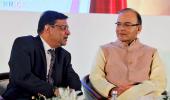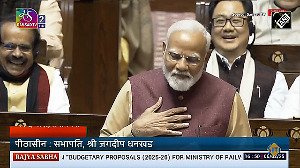The main reason was that CPI inflation would likely remain below 4 per cent till July.

Almost nobody expects the six-member Monetary Policy Committee of the Reserve Bank of India (RBI) to tinker with the policy rate on December 5, given the low oil prices and the rupee finding some support because of that.
The same sentiment is reflected in the Business Standard poll of 12 economists and market experts, who said the central bank would exercise ‘pause’ in the upcoming bi-monthly policy review as well as during the rest of the financial year.
The policy repo rate is unlikely to change in the next six months from the current 6.50 per cent, the participants said.
The main reason, they said, was that CPI inflation would likely remain below 4 per cent till July.
Union Bank of India managing director and chief executive Rajkiran Rai G said the panel might not change the rate in the next review as inflation was under control.
He said the stance might be same as the one articulated in October, and added that the long-term rates on deposits had already moved up.
Indranil Pan, chief economist at IDFC Bank, said, “There is no scope for a rate hike as oil prices have corrected, inflation is falling, the minimum support price for crops has not contributed to inflation as much as expected, global growth remains subdued, and the rupee has strengthened 4 per cent in a month or so.”
“The four factors - currency, oil, external condition, and headline CPI inflation - are at a benign trajectory and give comfort to the MPC.
"Given the principal mandate of the MPC, the outcome should be balanced to dovish,” said Soumyajit Niyogi, associate director at India Ratings and Research.
Madan Sabnavis, chief economist at CARE Ratings, expected the central bank to change its stance back to ‘neutral’ from the ‘calibrated tightening’ adopted only in the October policy.
Rupa Rege Nitsure, group chief economist at L&T Financial Holdings, also said there was a case for a change in stance.
Even as the repo rate is unlikely to change, the cash reserve ratio may come down.
“Ever since the RBI announced OMOs for December, I would say there is an equal chance for a cut in the CRR by 50 bps, from 4 per cent as of today.
"More importantly, given that the government has been instructing the RBI to provide more liquidity to the banking system, there is equal probability of a CRR cut.”
The importance of the policy shifts to what the central bank says about liquidity.
The banking system is running a deficit of Rs 1 trillion, and this may worsen in the coming days as the government’s cash balance would likely build up due to higher borrowing, whereas scope for expenditure would come down to maintain the fiscal deficit target.
This may assume some structural problem and economists are eager to hear what the central bank says about it.
Till December, the central bank would be buying more than Rs 1 trillion through bonds from the secondary market, of which more than Rs 70,000 crore has been done already. But clearly that is not enough, say economists.
“The RBI may have to revisit its stance because there is clearly a liquidity problem, even when you look at how they are infusing liquidity through open market operations for example.
"If the government allows banks under prompt corrective action to selectively lend to small enterprises or through micro-finance, the RBI will have to keep liquidity accommodative,” Nitsure said.
Instead of just focusing on policy measures, the monetary policy should also now start looking into other aspects of the policy, said Soumyakanti Ghosh, chief economist at SBI.
“The policy statement must find some ways to indicate the prevailing uncertainties around the expectations of an appropriate policy in the context of global uncertainties.
"For example, like the Bank of England, the inflation fan chart of RBI could also give out the subjective probabilities of respective inflation outcomes,” Ghosh said, adding, “the MPC members or RBI should also meticulously use the Monetary Policy Report to better explain and focus on its broad strategy.”
Photograph: PTI Photo












 © 2025
© 2025